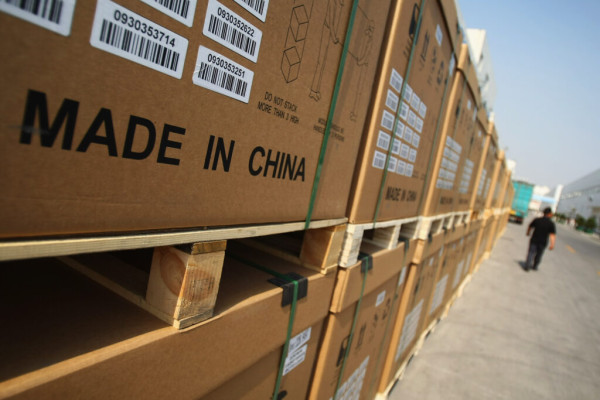As possible Trump return looms, EU’s Lagarde urges US to avoid trade wars
With a potential return of Donald Trump to the White House, the EU's top finance official is appealing to the U.S. to avoid the sort of acrimonious trade clashes that characterized his 2017-2021 presidency.
For both Europe and China, the tit-for-tat tariff wars, which reached their flashpoint in 2018, are one of the abiding memories of Trump's years in power.
Asked about Trump's repeated threats to double down on tariffs in a second term, European Central Bank President Christine Lagarde said the U.S. should stay true to its traditions and continue to stand up for open trade, rather than bringing down protectionist shutters.
“Fair trade is a key boost for growth, for employment, for innovation, for productivity,” she said during a public interview with Bloomberg in Washington.
“It’s something that we should not throw away,” she added, “because ... any periods of time where this country, the United States, has thrived, were periods of trade, not periods of ‘I’m going to retire behind my boundaries and play at home’.”
While China remains his chief target for such trade measures, the blanket 20 percent tariff that he has promised would also inevitably hurt European exporters.
Lagarde implicitly acknowledged Trump’s point, however, that the West should not allow China to keep flooding the world market with its products as it has done in recent years.
Without singling China out by name, she stressed that: “Trade conditions have to be fair. They cannot be constantly subsidized in a very opaque and unfair way.”

In addition to the direct risk of its own goods being priced out of the U.S. market, Europe also faces the indirect risk that China might dump even more of its exports on Europe if it can’t get them into the U.S., adding to the woes of an economy that has lost momentum in recent months.
Lagarde was speaking on the sidelines of the annual meetings of the International Monetary Fund and World Bank. The IMF had warned earlier in the day that protectionism and the escalation of current conflicts are the two biggest threats to the world economy right now.
While it still expects the world economy to grow by 3.2 percent this year, it trimmed its forecast for next year to 3.2 percent from 3.3 in April.